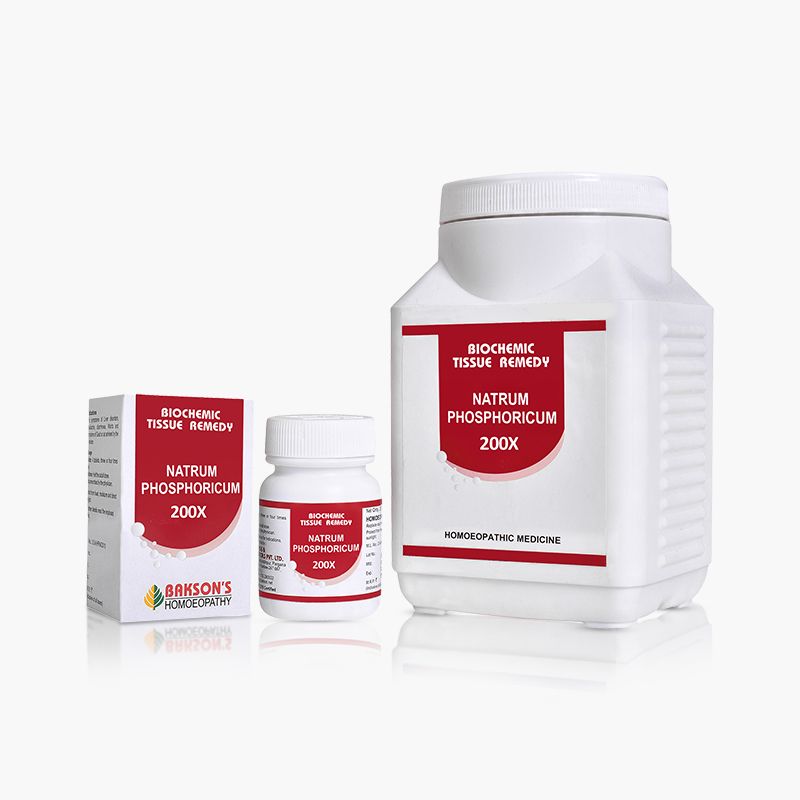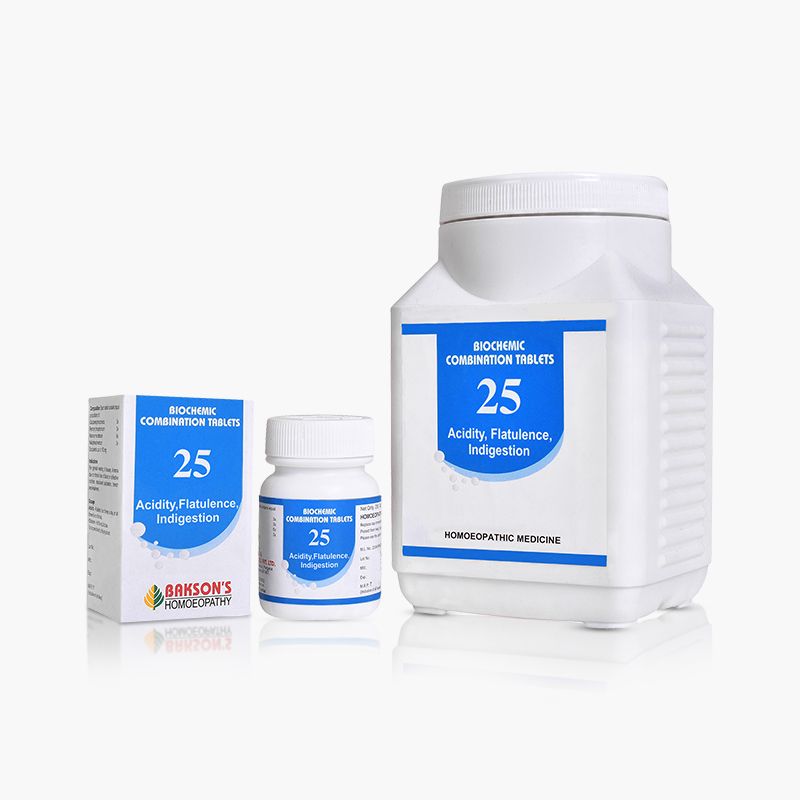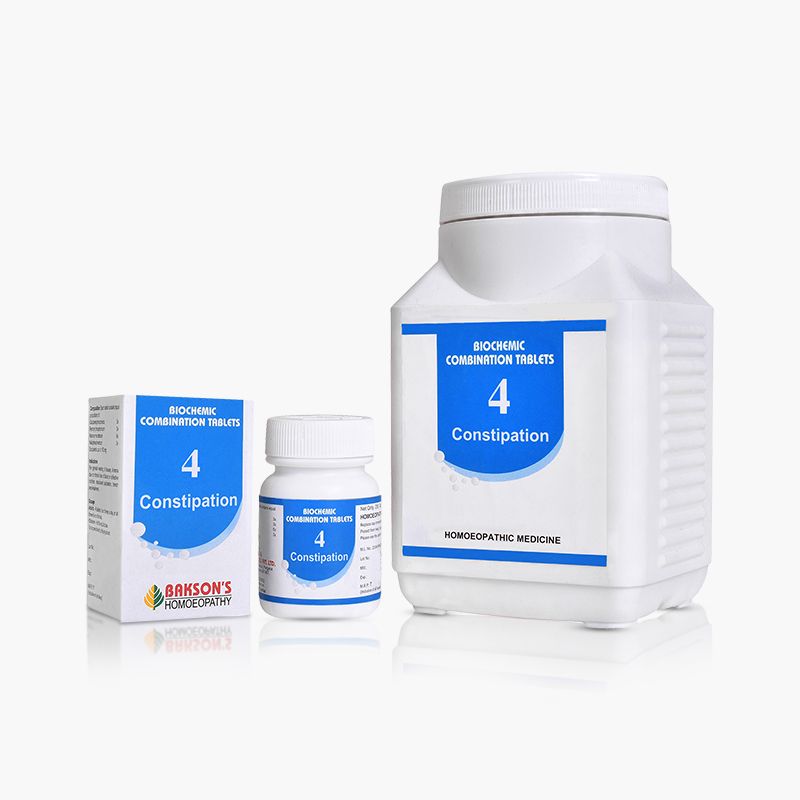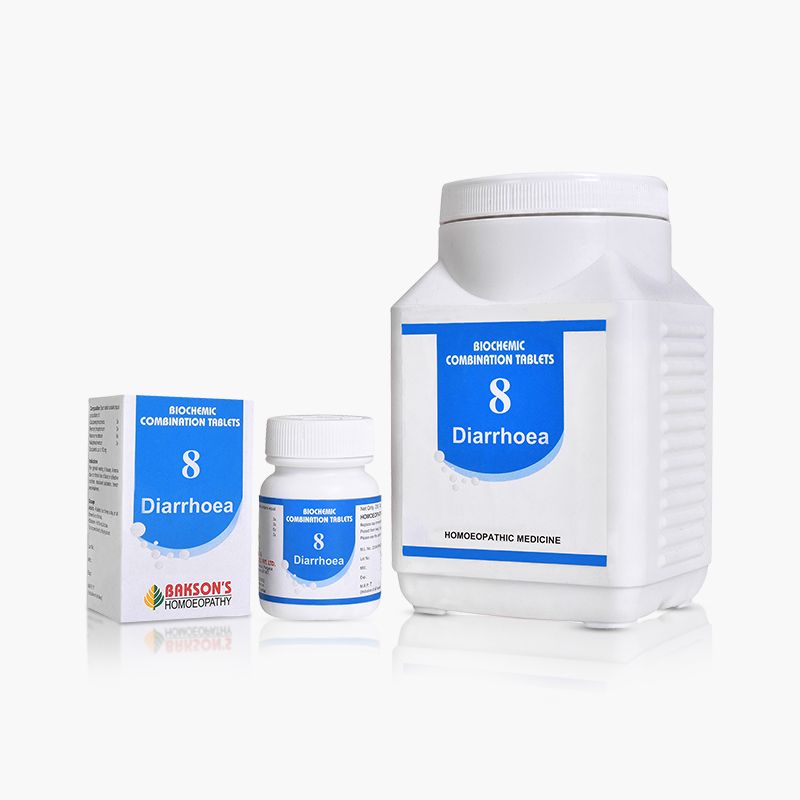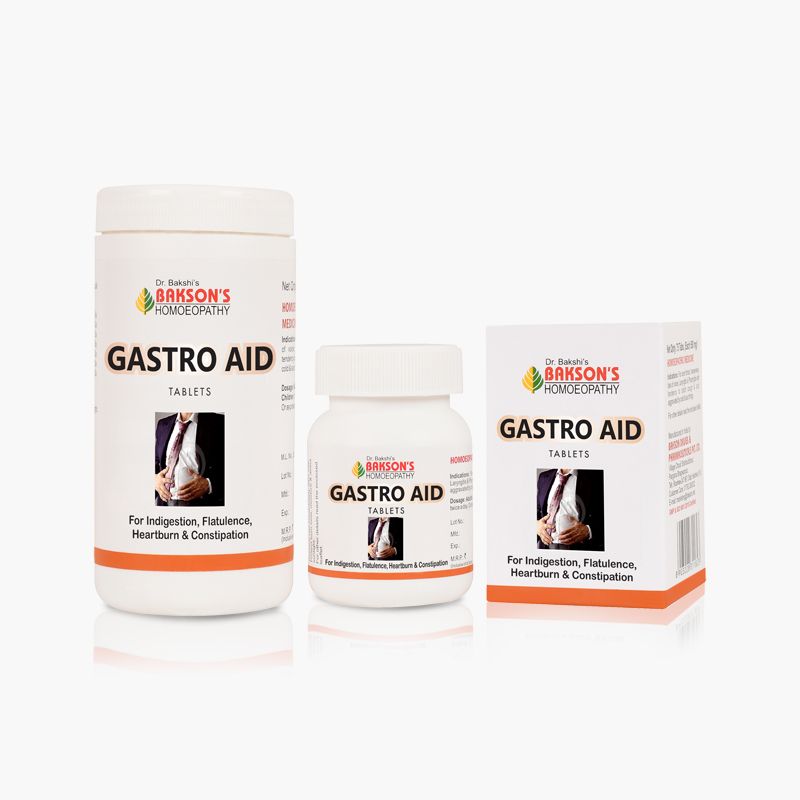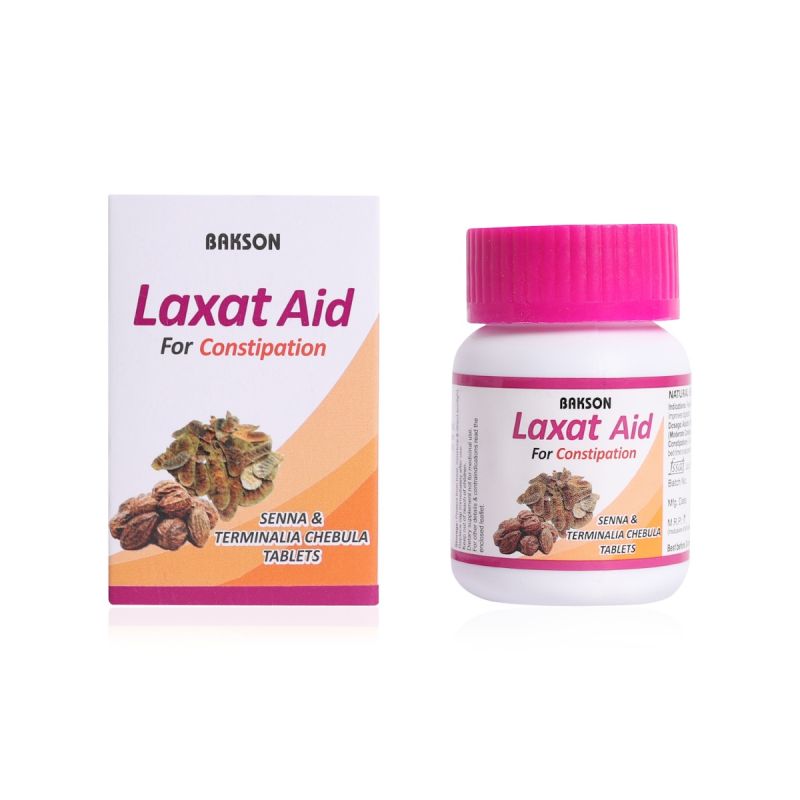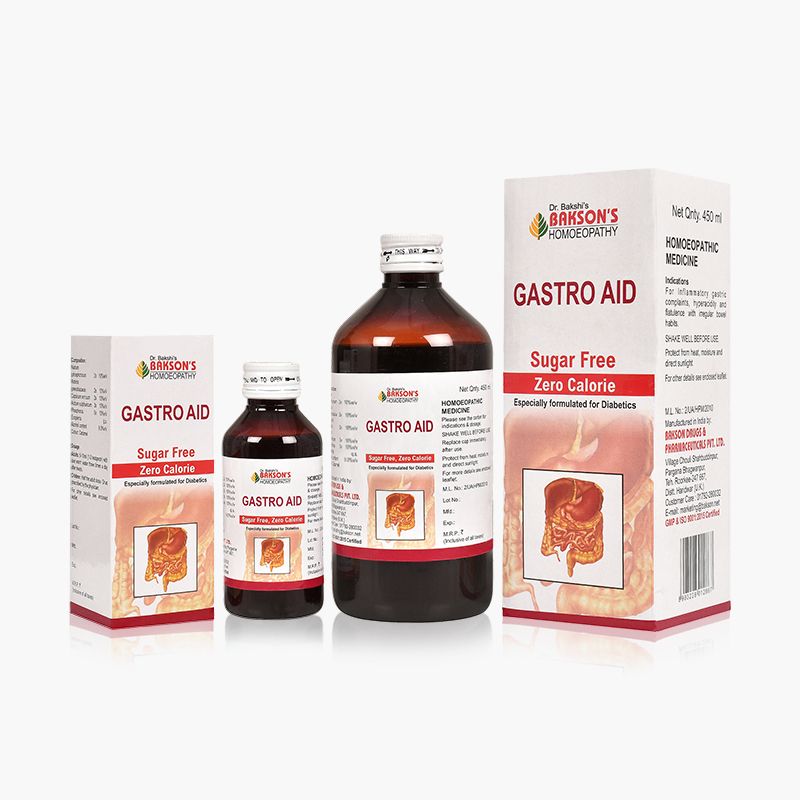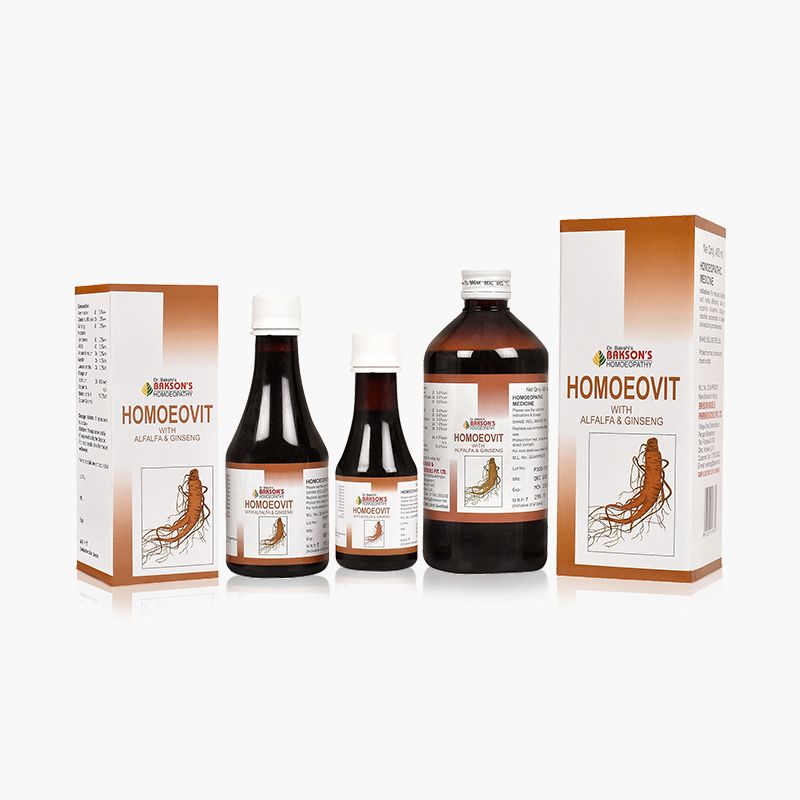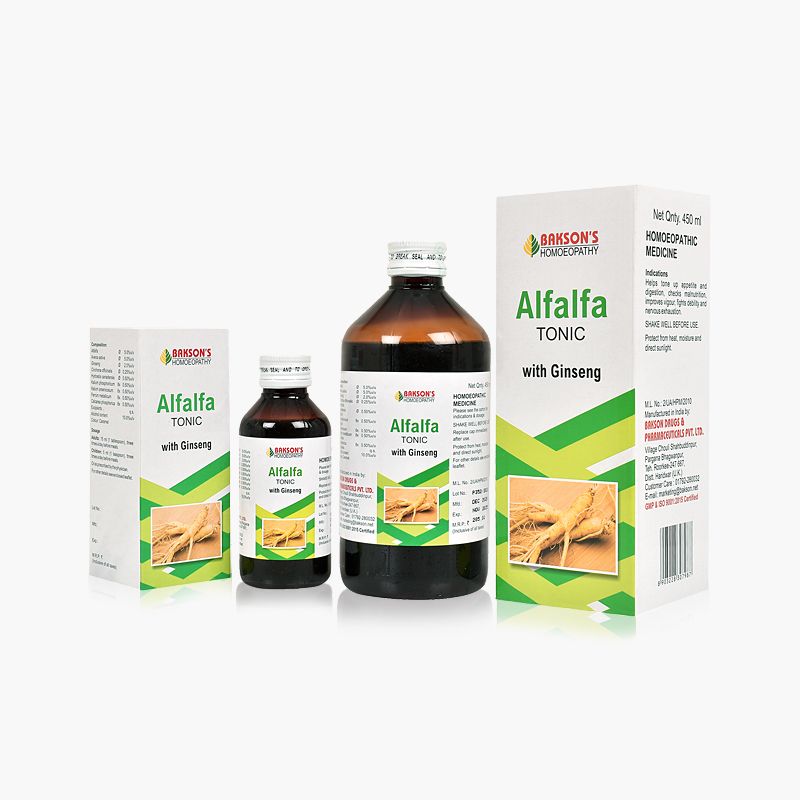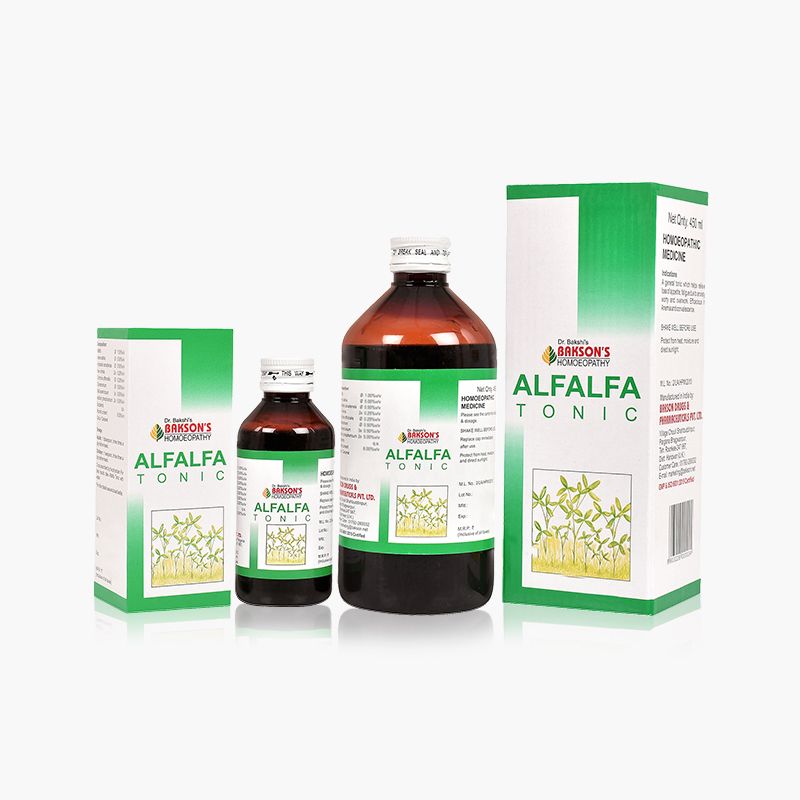We use cookies to make your experience better. To comply with the new e-Privacy directive, we need to ask for your consent to set the cookies. Learn more.
BAKSON DIGE AID SYRUP
Bakson's Dige Aid Syrup is a homeopathic medicine for weak digestive system that helps relieve acidity with gas issues (flatulence), nausea, severe abdominal pain, or cramping (abdominal colic) associated with gastric disorders.
Bakson's Dige Aid Syrup is a homeopathic medicine clinically formulated to regularize digestion. It relieves acidity, gas issues (flatulence), nausea, vomiting, and abdominal pain.
Composition: Piper nigrum 2x, Nux vomica 3x, Thymus serpyllum 3x, Asafoetida 3x, Hydrastis canadensis 3x, Lycopodium clavatum 2x, Coriandrum sativum 3x, Carbo vegetabilis 3x.
Indications: Bakson's Dige Aid Syrup is the best homeopathic medicine for acidity, flatulence, nausea, and abdominal colic which are commonly associated with gastric disorders.
Dosage: Adults: Take 1 teaspoon of the tonic three times a day after meals. Children: Take half the adult dose. Alternatively, follow the dosage recommended by your physician.
For optimal results, it is recommended to consume the Dige Aid Syrup with water.
Contra-indication: None
Side effects: Bakson's Dige Aid Syrup is a homeopathic medicine for relieving indigestion and since it has natural ingredients it has no known side effects.
Expiry: 5 years from the date of manufacturing.
Manufactured in India by: Bakson Drugs and Pharmaceuticals Pvt. Ltd. Chouli Shahbuddinpur, Pargana Bhagwanpur, The. Roorkee-247661, Distt Haridwar, UK, India Customer care executive Mail id and contact details-customercare@
Disclaimer: The information provided herein on request, is not to be taken as a replacement for medical advice or diagnosis or treatment of any medical condition. DO NOT SELF MEDICATE. PLEASE CONSULT YOUR PHYSICIAN FOR PROPER DIAGNOSIS AND PRESCRIPTION.
Our digestive system acts as the gateway for nutrients derived from the food we consume, crucial for sustaining our bodily functions. This process involves the intricate steps of digestion, absorption, and assimilation. However, genetic predisposition, inherited allergic tendencies, along with poor dietary habits, stress, excessive consumption of processed, spicy foods, salt, alcohol, lack of exercise, and smoking can disrupt the digestive system. Such disturbances not only cause discomfort but can also lead to severe consequences, including fatality. Digestive disorders commonly manifest as abdominal pain, stomatitis, dyspepsia, flatulence, nausea, vomiting, diarrhea, and constipation. Bakson's Dige Aid Syrup is a homeopathic medicine for weak digestive systems. The natural ingredients in the product are clinically tested to alleviate acidity and gastric issues. Action of Ingredients: Piper nigrum (Black Pepper) Origin: Piper nigrum is a flowering vine native to South India. Mechanism of Action: Piper nigrum is known for its efficacy in alleviating gastric discomfort, cramps, and inflammation of the intestines. Its active compound, piperine, prevents the formation of gas in the gastrointestinal tract (carminative) and has anti-inflammatory properties. Piperine reduces gastrointestinal discomfort and flatulence, while also potentially promoting digestion. It provides relief from symptoms such as heaviness, colic, and cramps. Additionally, it is also used to address vomiting by reducing nausea and discomfort in the stomach. Nux vomica Origin: Nux vomica is derived from the seeds of the Strychnos nux-vomica tree, native to Southeast Asia and India. Mechanism of Action: Nux vomica is indicated for frequent bitter and acid risings, heartburn, and digestive discomfort. It address nausea and an inclination to vomit after or during a meal. Nux vomica works by promoting digestive balance and reducing symptoms of indigestion and acidity. It helps alleviate issues such as water brash, aching, tension, fullness, and distension of the abdomen, especially in the epigastrium. The active component in it helps regulate appetite and digestion. Thymus serpyllum Origin: Thymus serpyllum is a creeping plant native to Europe and North America. Mechanism of Action: Thymus serpyllum is indicated for burning in the pharynx and a sore throat, which worsens with empty swallowing. Its action involves soothing and anti-inflammatory properties that provide relief from discomfort, pain, or scratchiness in the throat (pharyngeal discomfort), especially during swallowing. Asafoetida Origin: Asafoetida is derived from the resin of the Ferula assa-foetida plant, native to Central Asia. Mechanism of Action: Asafoetida is effective in treating conditions with cutting and burning sensations in the stomach, along with flatulence and regurgitation of liquid. It works by reducing gas production in the digestive tract and providing relief from cramping and burning sensations in the stomach. Hydrastis canadensis (Goldenseal) Origin: Hydrastis canadensis is native to North America and is derived from its rhizome and roots. Mechanism of Action: Hydrastis canadensis is known for its bitter taste and its role in addressing acidity, weakness, and indigestion. It is indicated for cases where individuals vomit all they eat. Its mechanism of action includes reducing inflammation and promoting healing. It helps alleviate symptoms of acute, distressing, cutting pains in the stomach, flatulence and inflammation of the mucous membranes lining the intestines (intestinal catarrh), and potential ulceration. Lycopodium clavatum Origin: Lycopodium clavatum, also known as clubmoss, is a plant native to Europe. Mechanism of Action: Lycopodium clavatum is effective in addressing slow digestion and symptoms such as burning, sour, or bitter risings, especially after a meal. It helps relieve heartburn and vomiting. The action of Lycopodium clavatum involves regulating digestive processes, reducing bloating, and alleviating digestive discomfort. It also provides relief from liver-related issues by supporting liver function. Coriandrum sativum (Coriander) Origin: Coriandrum sativum is a plant native to regions in southern Europe and North Africa. Mechanism of Action: Coriandrum sativum is used to prevent abdominal cramps and stomachache. Its mechanism of action includes carminative and soothing properties that help alleviate digestive discomfort, particularly abdominal cramps and stomachache. Carbo vegetabilis Origin: Carbo vegetabilis is derived from burnt beech wood and is used in homeopathic remedies. Mechanism of Action: Carbo vegetabilis is effective for addressing slow digestion. It helps alleviate symptoms such as eructations, heaviness, fullness, sour risings, nausea, and vomiting, even after consuming the simplest foods. Its mechanism of action involves promoting digestion, reducing bloating, and addressing digestive discomfort through carminative properties. |





